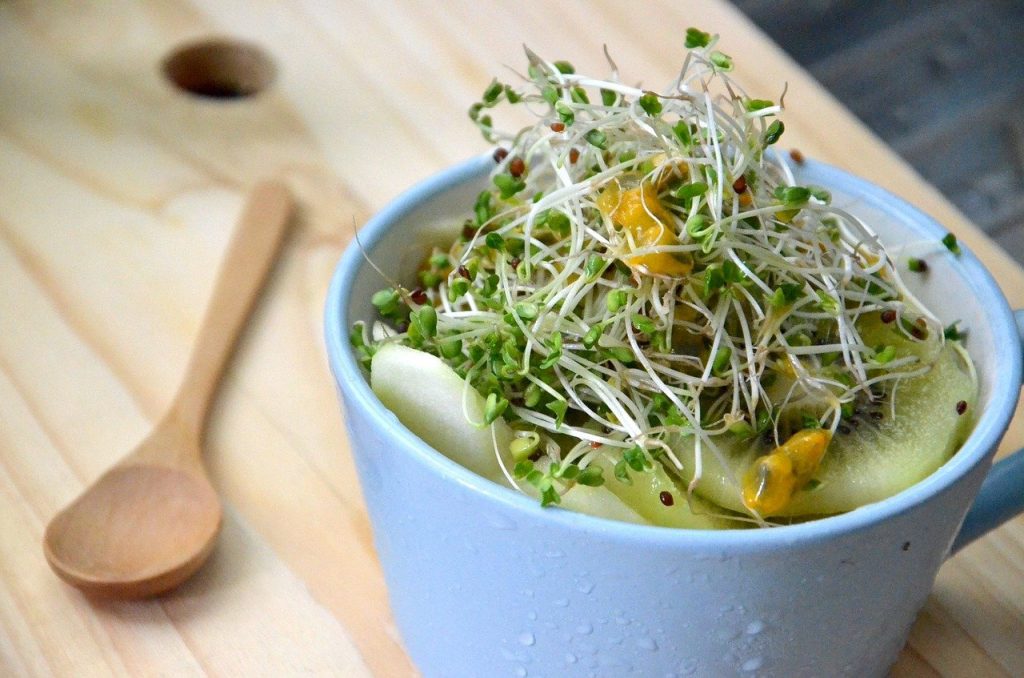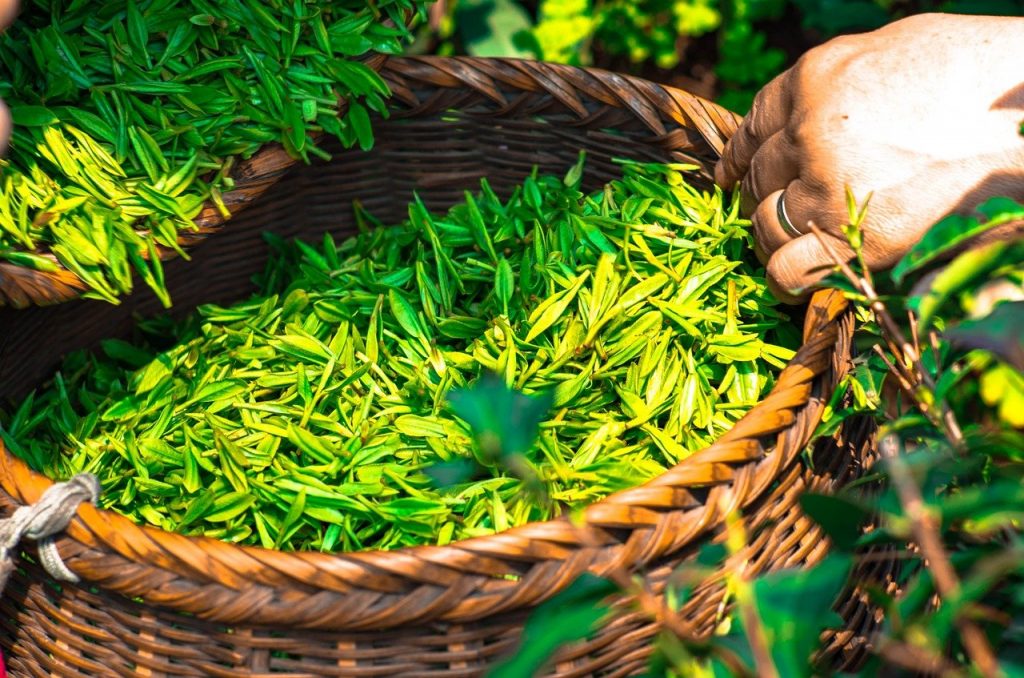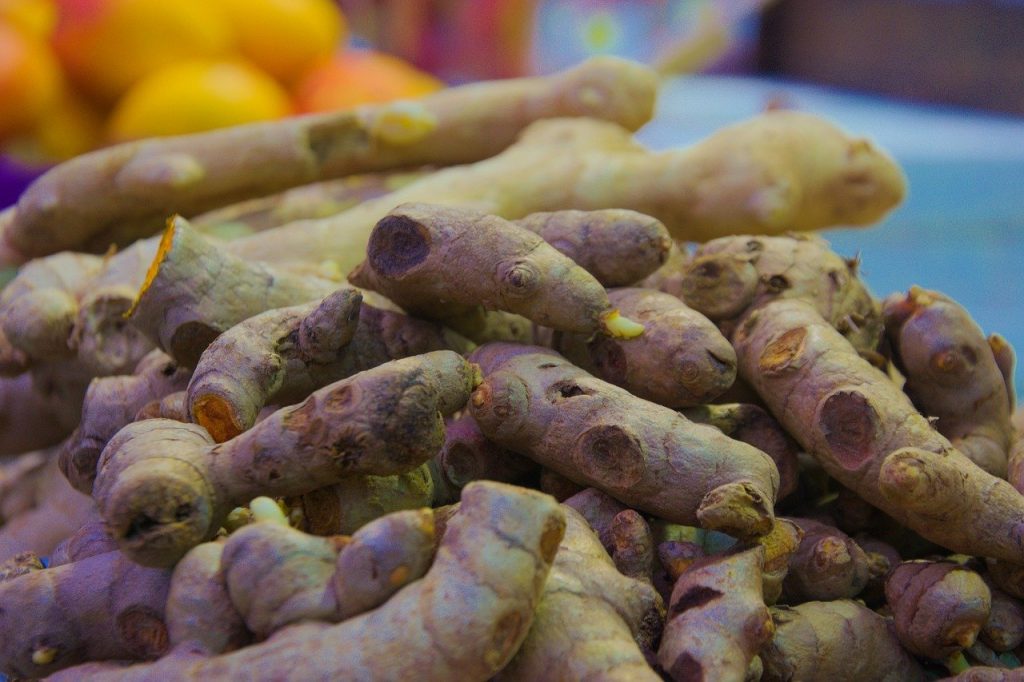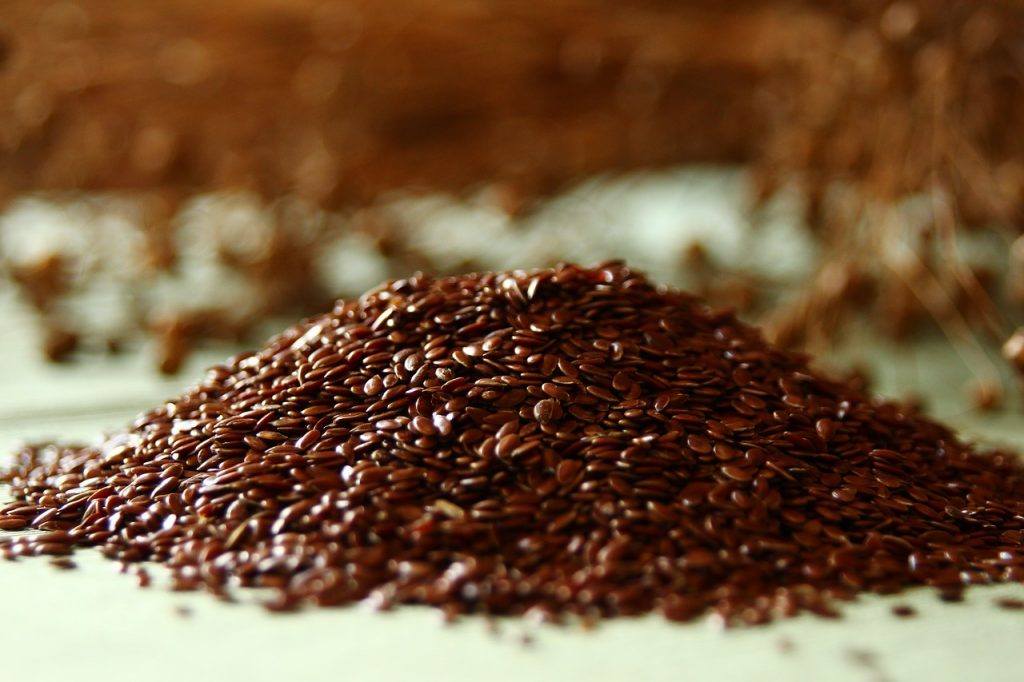We can eat a diet rich in nutrients that prevent cancer, or we can gorge on foods that promote cancer. We have a choice. All plants including fruits, vegetables, nuts, seeds, whole grains, and herbs contain both antioxidants and phytochemicals which play a role in disease and cancer prevention. It may surprise you that the top ten cancer fighting foods all come from plants—the foods God created for us to eat.
Let’s look at the foods that have the greatest potential to reduce our risk for cancer:
Cruciferous vegetables – The family of cruciferous vegetables includes Brussels sprouts, broccoli, cauliflower, arugula, cabbage, and kale. These vegetables contain powerful nutrients including indole-3-carbinol and sulforaphane, which have been proven to block the growth of cancer cells and even kill them. The America Cancer Society began recommending cruciferous vegetables to decrease cancer risk back in 1984! Here’s a complete list of cruciferous vegetables.

Broccoli Sprouts – Although this is a cruciferous vegetable, it deserves to stand on its own. Why? Because just a small clump of these sprouts has the same impact as a bowl of broccoli. This is why I throw them in my daily smoothie. A little gives a powerful punch in preventing cancer.
Tomatoes – These tasty vegetables that can be easily grown in your own garden contain lycopene, which is a known for preventing prostate cancer. Tomatoes are also a good source of vitamins A, C, and E which are all enemies of cancer-friendly free radicals.

Green Tea – This inexpensive tea is rich in polyphenols, which are natural compounds that have high health benefits such as reducing inflammation and helping to fight cancer. Green tea also contains a catechin called epigallocatechin-3-gallate (EGCG). Catechins are natural antioxidants that help prevent cell damage and induce apoptosis or programmed cell death. A hallmark of cancer is the ability of malignant cells to evade apoptosis.
Berries and Grapes – These delicacies of nature not only taste good, but according to Harvard medical doctor, Dr. William Li, they also can also inhibit angiogenesis, the formation of blood supply to tumors. A tumor cannot grow without a blood supply, so anything that inhibits this prevents cancer and tumor growth. Dr. Li’s research indicates that blueberries, red grapes, and teas have almost the same effect as Avastin, a cancer drug.
Garlic – Research by the National Cancer Institute and several other respected organizations support claims that consuming garlic strengthens protection against some types of cancer, including stomach, esophagus, pancreas, colon, and breast cancer.
Onions – Allium vegetables and their components have effects at each stage of carcinogenesis and affect many biological processes that modify cancer risk. Red onions have the most cancer fighting power because they contain several anti-cancer compounds including quercetin and anthocyanins.

Turmeric – Researchers are very interested in curcumin, one component of turmeric. The compound has prevented or slowed the growth of cancer in lab animals. Turmeric is also rich in antioxidants that can help impede the development of tumors by protecting cells against damage from free radicals.
Spinach – American researchers discovered that this vegetable contains high quantities of chlorophyllin, the chemical that gives spinach its distinctive, dark green color and may help reduce the risk of liver cancer. Spinach is also rich in lutein and zeaxanthin, carotenoids that remove unstable molecules called free radicals from your body before they damage it. These carotenoids can protect against cancers of the mouth, esophagus and stomach. Some studies suggest the carotenoids in spinach and other foods reduce the risk of ovarian, endometrial, lung, and colorectal cancer, too.

Flaxseeds – Freshly ground flaxseeds are a powerful way to prevent breast cancer. They contain phytoestrogens which in limited amounts attach to estrogen receptors, preventing stronger, more stimulating estrogens from being able to attach. An average of two tablespoons daily is a safe amount even for those with estrogen-positive cancers.
As a cancer survivor, I now eat two servings of cruciferous vegetables, one serving of broccoli sprouts, one cup of berries, and two tablespoons of flax seeds in my daily smoothie. By doing this, I’m helping to prevent recurrence. It’s recommended that we eat 10 servings of fruits and vegetables daily because these plants build the immune system (preferably organic) and prevent cancer. The more plants we eat—the better. What we eat matters!
What plants do you eat to prevent cancer or recurrence?
For Your Health,
Ginny




